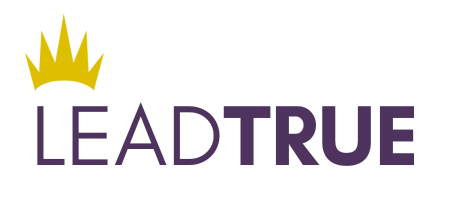The disastrous consequences of opting out of office politics
Many people hear the word "politics" and shudder.
This is understandable given what is happening around the world today. Global governmental politics still seem to be comprised of egotistical game playing with little care for integrity. Some people might go as far as to say that politicians and the political system is leading civilized society into a downward spiral of devastation.
I hope that is not the truth. Some of us have become galvanized to engage in the process, however the negativity swirling around the media and government leaders is also causing people to opt-out of anything called “politics”.
A few weeks ago while driving, I was listening to National Public Radio program and heard the end of an interview with a US Congressman. He was an articulate man, and his background was in public service as a state prosecuter. The interviewer asked him, “Why are you leaving political office after 1 term?” He replied, “Because I am not a very good politician.”
He then went on to say, “I have great ideas, but I am more committed to solving problems than winning arguments. And in today’s climate, it is not just about winning, it’s about beating the other guy, it’s about demeaning him and challenging his patriotism and his loyalties.”
My heart sank as I listened to his words. I thought, “My goodness, this is exactly the kind of leader we need in our government right now! We need more men and women like him, not less!”
Quality leaders leaving their positions is not new. We have seen similar reactions from female leaders in organizations for a long time. Women (and men) have witnessed numerous situations where people (including themselves) have been embarrassed, humiliated, or undermined, leaving a wake of eroded trust and damaged relationships. This has led to a traditional and one-dimensional definition of corporate politics, referred to as "powering over", and in the past, unfortunately, it has been a strong model for how to get ahead in your career.
However, for up-and-coming leaders who are unwilling to compromise their values and their ethics, this creates a dilemma where talented next-generation leaders are faced with making a choice (consciously or unconsciously) to avoid this path. Many are now opting out of office or corporate politics. They do this by refusing top-level positions, flying under the radar, or leaving to start their own practice.
The fallout from opting out is disastrous.
When talented, committed, smart, innovated, values-based leaders opt out:
It impacts the culture and climate of the organization. People who disagree or think differently stop speaking up.
It clogs up the leadership pipeline and prevents diverse talent from rising to top positions.
It stifles creativity and innovation.
It feeds a cycle of organizational stress which contributes to burnout and health issues for employees.
It creates a talent drain, increasing turnover because people don't feel aligned with their organization’s values.
We believe that quality leaders need to opt in.
It is imperative that we all learn to navigate our company’s political landscape while holding true to our leadership values. If you do choose to opt out and refuse to "play the game" not only does it perpetuate the current culture in your company, it could also damage your own career.
How do we opt in without selling out, becoming something we don't want to be?
1. Redefine politics.
If we strip away the negative connotation, company politics is simply learning to navigate an organization's system. Are all politics bad? No. That would be saying all organizational systems and cultures are bad. Are all people who embrace company politics bad? No. Quality, well-intentioned people can embrace the system and actually use it to get to a place of influence in their organization.
Understanding politics is quite effective when we integrate our individual and organizational goals. When we are transparent about how our personal goals align with company objectives (and vice versa), we are engaging, empowered, motivated, and attractive as leaders.
2. Accept that politics exist in every organization; then practice positive politics.
Yes, politics exist in every organization, company, community, and family. Politics are inherent in any system. There can be negative politics, which can feel inauthentic and manipulative. When people attain leadership positions in this way they often fail at delivering promises and focus on an ego-based agenda. They influence others, but in a way that is divisive and reactionary.
However, when you use positive political actions, you influence, inspire, and motivate others in a way that is uplifting, creative, forward-moving, and honorable, whether or not others agree 100% with your decisions. Typically a leader who practices positive politics includes both individual and organizational best interests in the political process.
3. Emulate the top characteristics of politically intelligence leaders:
Taken from The Academy for Political Intelligence founder David Bancroft-Turner, the positive traits of politically intelligent leaders, including the ability to:
Be tactful and aim for win/win outcomes
Empower others to achieve their own and the organizations goals
Check and challenge gossip and rumors
Negotiate, collaborate and cooperate with all stakeholders
Work hard to achieve goals for self and others
Network effectively; know where to get information and who’s in or out of favor
Be empathetic and supportive of the team and others
Positively challenge others to expand their thinking
Use their own and other’s power bases to positively influence organizational outcomes
Commit time, effort, and energy to build relationships and establish trust
We know the way to have the biggest influence on the future of your organization is to opt in and practice positive politics.
Contact us to discuss Political Intelligence training for you, your team, or your organization.

